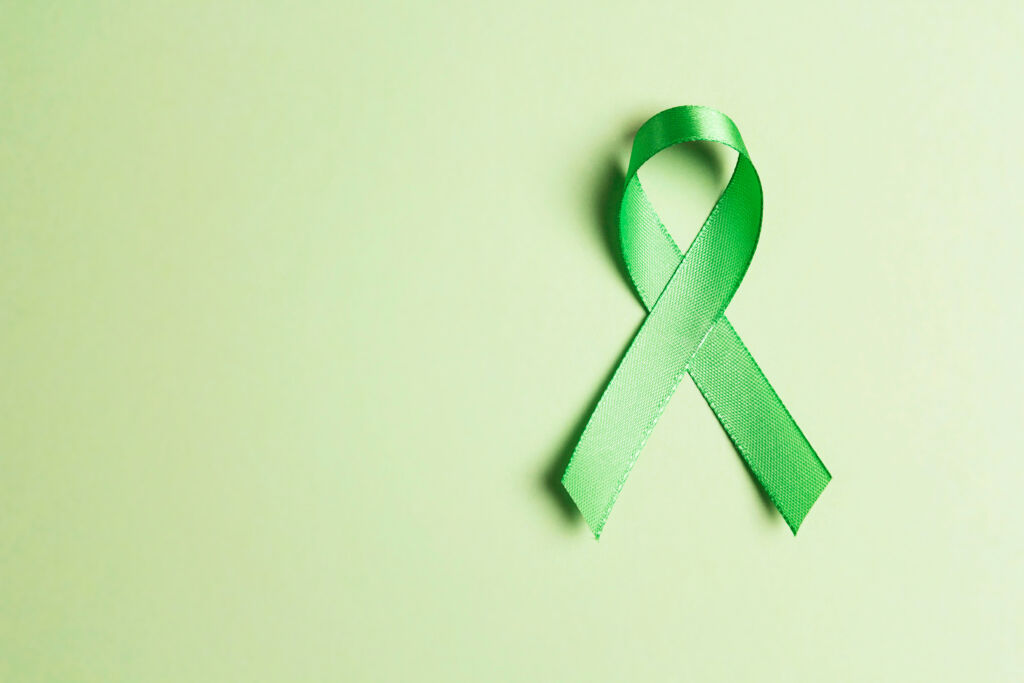The Greenbranch team is commemorating Mental Health Awareness Month this May. May is recognized nationally as Mental Health Awareness Month, providing an opportunity to raise awareness, combat stigma, and promote mental health resources. The Mental Health Awareness Month was established in 1949 to increase awareness of the importance of mental health and wellness in Americans’ lives.
Despite its prevalence, mental health remains shrouded in stigma, preventing many people from seeking help. 1 in 5 US adults experience mental illness each year and only half of them receive treatment. Early intervention and access to quality care are crucial for managing mental health conditions and improving quality of life.

Understanding Dual Diagnosis
Substance use disorders often occur simultaneously in individuals with mental illness, usually to cope with overwhelming symptoms. In 2022, there were 85,266 treatment admissions and 84,437 discharges reported to the New Jersey Department of Human Services, Division of Mental Health and Addiction Services by substance use disorder treatment providers.
The combination of mental illness and substance use disorder has its own term: dual diagnosis, or co-occurring disorders. Either disorder (substance use or mental illness) can develop first.
There can be many combinations of dual diagnosis and symptoms vary widely. Symptoms of substance use disorder may include:
- Withdrawal from friends and family
- Sudden changes in behavior
- Engaging in risky behaviors
- Developing a high tolerance and withdrawal symptoms
- Feeling like you need a drug to be able to function
What is the Treatment for Dual Diagnosis?
 The best treatment for dual diagnosis is integrated intervention, when a person receives care for both their diagnosed mental illness and substance use disorder. Medications are useful for treating mental illness. Certain medications can also help people experiencing substance use disorders ease withdrawal symptoms during the detoxification process.
The best treatment for dual diagnosis is integrated intervention, when a person receives care for both their diagnosed mental illness and substance use disorder. Medications are useful for treating mental illness. Certain medications can also help people experiencing substance use disorders ease withdrawal symptoms during the detoxification process.
Psychotherapy is usually a large part of an effective treatment plan. In particular, cognitive behavioral therapy (CBT) helps people with dual diagnosis learn how to cope and change ineffective patterns of thinking, which may increase the risk of substance use.
Greenbranch is a leading NJ alcohol and drug rehab located in Atlantic Country providing treatment to clients with substance use disorder and co-occurring mental health conditions. At Greenbranch Recovery, our goal is to provide individualized, flexible treatments to meet your needs or the needs of your loved one suffering from drug abuse or alcohol addiction.
Partial Hospitalization Program
Partial hospitalization is typically considered the next step after time spent in an inpatient or residential rehab center. Coming out of a residential program, where you have been separated from many of the stressors and triggers of daily life and receiving detox treatment services, can be a demanding endeavor. PHP programs stand in the gap, helping you transition from one part of your recovery to another with more confidence.
At Greenbranch Recovery, the partial hospitalization program meets five days a week, requiring up to six hours of participation daily. This is the highest level of outpatient treatment, which means you’re still heavily immersed in therapies including individual and group counseling services to support your mental health, recreational and educational sessions.
Intensive Outpatient Program
Often used as the step-down from PHP, intensive outpatient programs reduce the amount of time you spend in treatment each week and provide a more flexible schedule that lets you continue integrating into a new normal for day-to-day life. At Greenbranch Recovery, the IOP meets during the day and evening to increase your ability to return to obligations such as work or school as you continue with your recovery.
Our IOP typically begins with participation three times each week for up to three hours each session, but as you work through the program and meet clinical milestones set by you and the treatment team, participation requirements taper off. The goal of IOP is often to move you from PHP to general outpatient support seamlessly.
General Outpatient Program
General outpatient programs are usually considered the final step in an addiction treatment continuity of care that runs from inpatient drug rehab to long-term follow-up and aftercare. Our outpatient services include group and individual counseling sessions and other support activities that take place during day and evening hours. At this point in recovery, you may only attend sessions once a week to continue to manage triggers and issues that arise as you return fully to daily life.
SPEAK WITH AN INTAKE SPECIALIST




